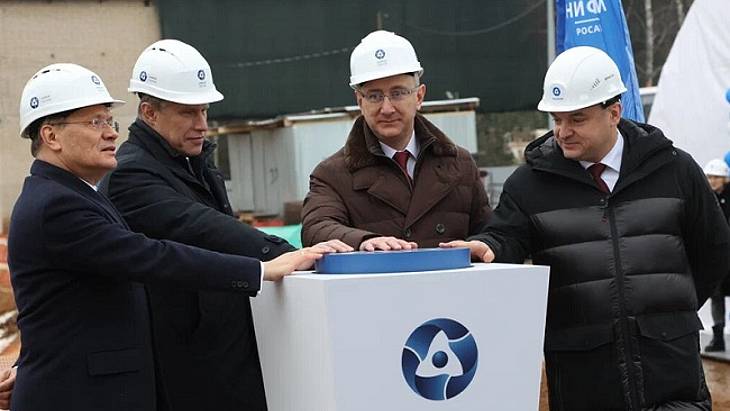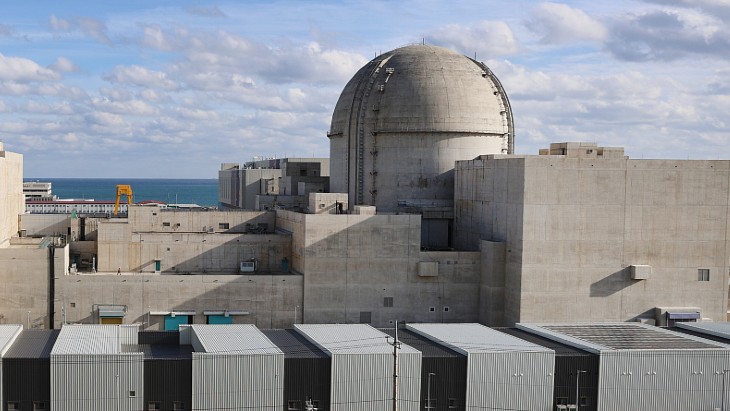The plant will manufacture products based on iodine-131, samarium-153 and molybdenum-99 isotopes as well as active radiopharmaceutical drugs based on lutetium-177, actinium-225 and other isotopes, Rosatom said.
They will be used to diagnose and treat patients for a variety of tumours and cancers.
Alexei Likhachev, director general of Rosatom, who was at the groundbreaking ceremony, said that the impact of sanctions imposed on the country meant "we understand that we have sufficient competencies to become one of the leaders in the development of high-tech medical care services for Russian citizens ... we see a powerful demand for the formation of domestic technologies in this area".
Mikhail Murashko, health minister, who was also at the ceremony, said: "Today, nuclear medicine technologies are advanced methods for diagnosing and treating oncological diseases and diseases of the cardiovascular system. The construction of Europe's largest plant for the production of radiopharmaceuticals in our country is a timely response of the Rosatom State Corporation to the growing demand for high-tech medical care in Russian healthcare."
Vladislav Shapsha, Governor of the Kaluga Region, said the plant's products "will help save the lives and health of thousands of people" and welcomed the choice of location, adding to the "scientific, industrial and medical" expertise in the region.
Rosatom, which says it is already one of the five largest participants in the isotope products market, says the new centralised facility will also have a separate fleet of vehicles and an aviation hub to ensure "prompt delivery of radiopharmaceuticals to medical institutions throughout the country and the world".
Obninsk has a long scientific history - it was home to the world's first nuclear power plant to supply electricity across a conventional transmission grid. The Atom Mirny (Peaceful Atom) 5 MWe water-cooled graphite moderated prototype reactor unit began operating in June 1954 and was shut down in April 2002.
According to the World Nuclear Association's Radioisotopes in Medicine paper, more than 40 million nuclear medicine procedures are performed each year, and demand for radioisotopes is increasing at up to 5% annually. Sterilisation of medical equipment is also an important use of radioisotopes.





_72306.jpg)


_49562.jpg)





